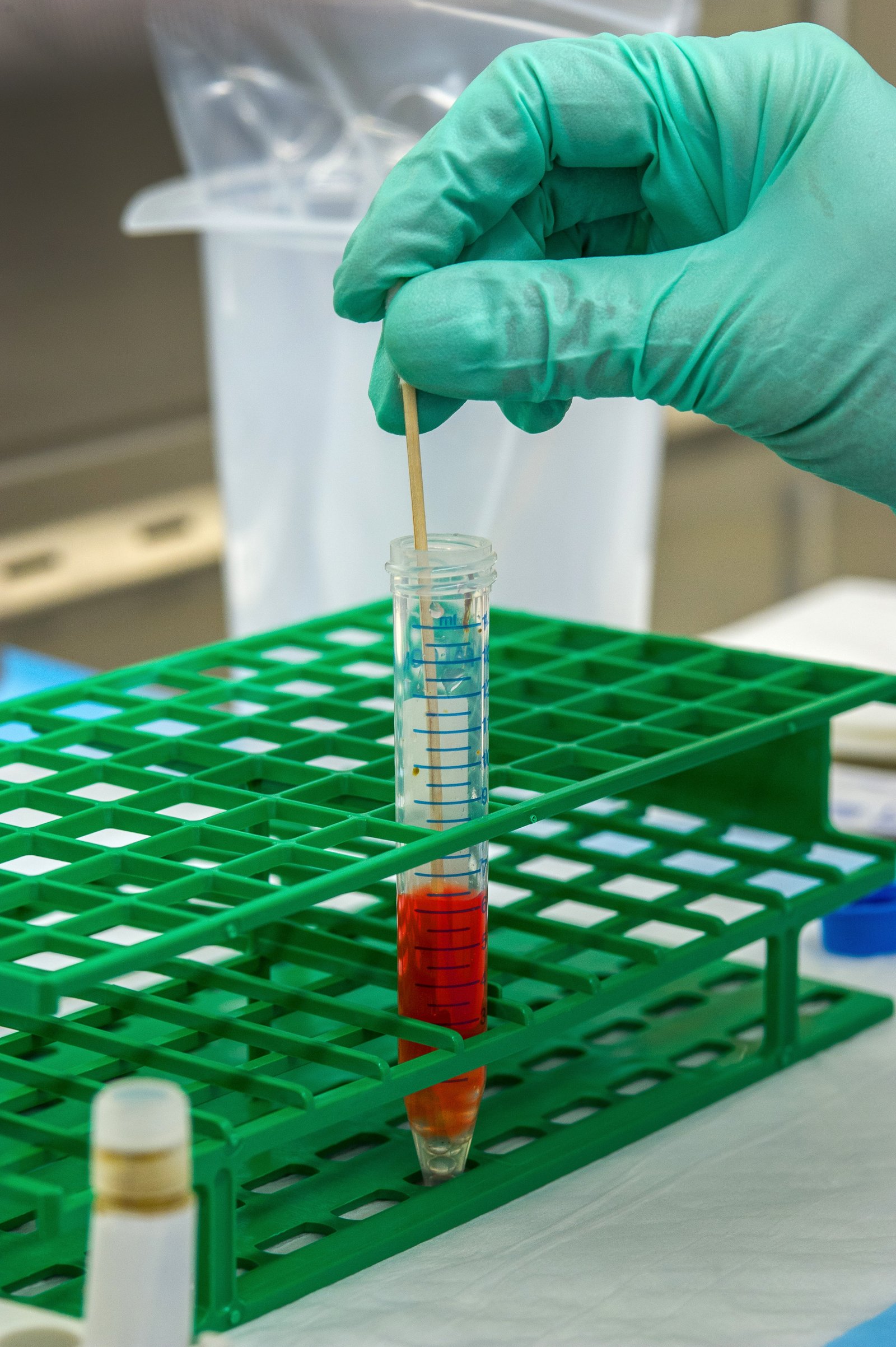OPERATION THEATRES
Our fourth generation Operation theatres are at par with the bests in the world.

As a lab technologist Matt Wolbert frequently processes blood tests that detect various cancers. In 2020, Claremount Care Hospital joined a multi-center clinical trial called PATHFINDER to evaluate one of those tests. It aims to detect up to 50 cancers in earlier stages that otherwise may not be found until symptoms appear, when the chances of survival are lower. As he often does, Chris volunteered to be a part of the study that was open to men and women ages 50 or older. “I always try to volunteer for those things because I know it can be hard to get enough recruits to get lab tests up and running,” recalls Matt, now 54, a former oncology nurse and father of two teenage girls. “So, I volunteered and assumed I would be a ‘normal’ volunteer.”
However, within a week, Chris received a call from the Claremount Care study coordinator who told him the test detected an abnormal marker in his blood. Soon after, upon meeting with hematologist-oncologist Grace Askan, DO, and undergoing a battery of additional tests (including a bone marrow biopsy), Chris was diagnosed with lymphoplasmacytic lymphoma, a slow-growing cancer affecting the blood cells. “It was quite a shock,” says Chris. “But it turned out to be good news. If I hadn’t found out about it, and waited until I wasn’t feeling well to go to the doctor, it could have been too late.” Also known as Waldenstrom macroglobulinemia (WM), this rare form of non-Hodgkin’s lymphoma has no cure. However, because the blood test detected Jeff’s condition in its very early stages, no treatment is currently needed. For now, Dr. Askan monitors him for any change in his condition every six months. She predicts he may eventually – in 10 years or so – require chemotherapy to slow its progression.


To date, the blood test being studied in PATHFINDER trials has yielded very promising results. Preliminary findings published in the Annals of Oncology revealed in cases where the test detected a cancer signal, as it did for Matt, it also pinpointed which organ it arose from with 93% accuracy. Additionally, the false positive rate was 0.7%, which minimizes the occurrences of unnecessary follow-up testing and patient anxiety. Chris has long been an advocate for regular health check-ups and recommended screenings, a belief strengthened during his six years as an oncology nurse. “Often, I treated people who didn’t get their cancer caught early, and were dealing with a terminal disease that could have been prevented. Early testing is extremely important.” Adds Dr. Askan, “Once cancers become metastatic, they are a lot harder to cure. Early detection of certain types of cancer may help us improve the cure rate and decrease morbidity levels.”
Our fourth generation Operation theatres are at par with the bests in the world.
There are more than 120 ICU beds for various surgical and medical specialties.
The fast pace of modern life leaves little time to keep a check on health.